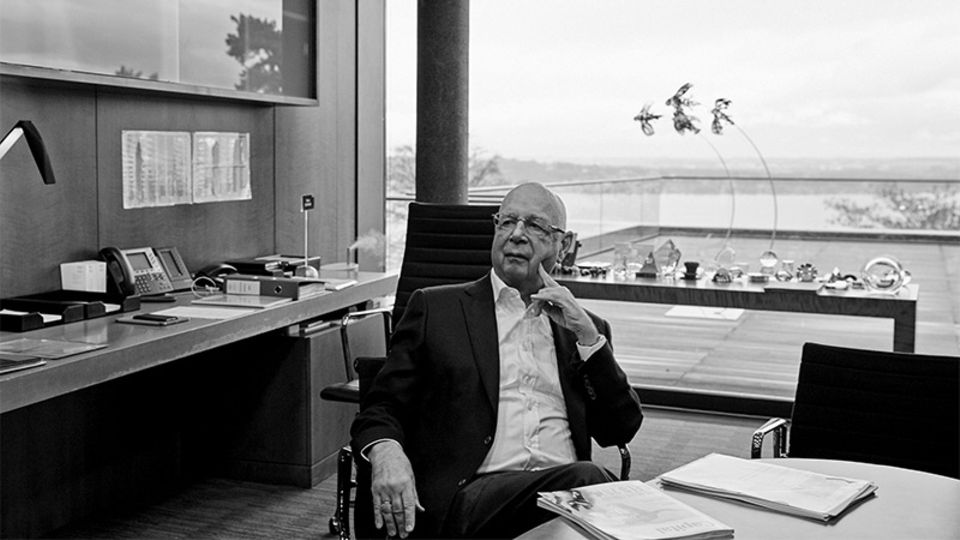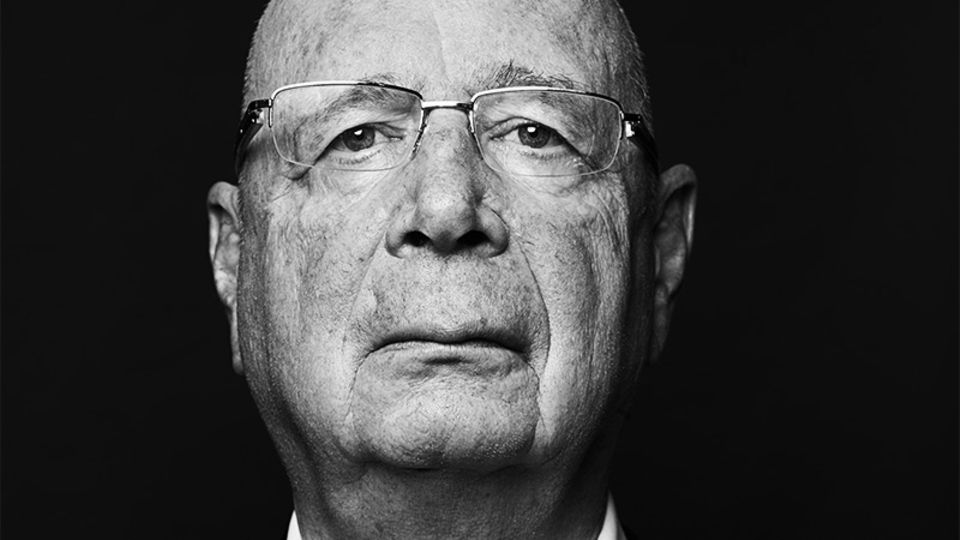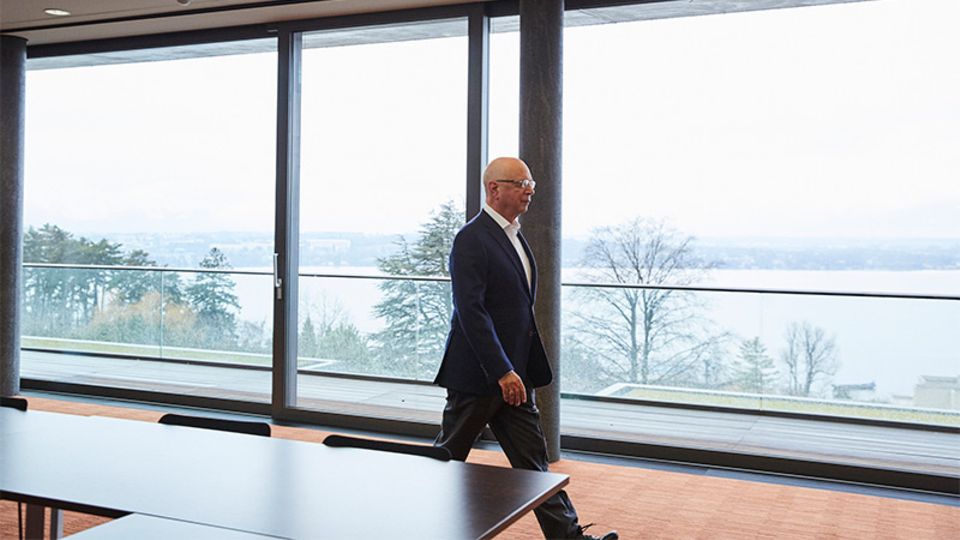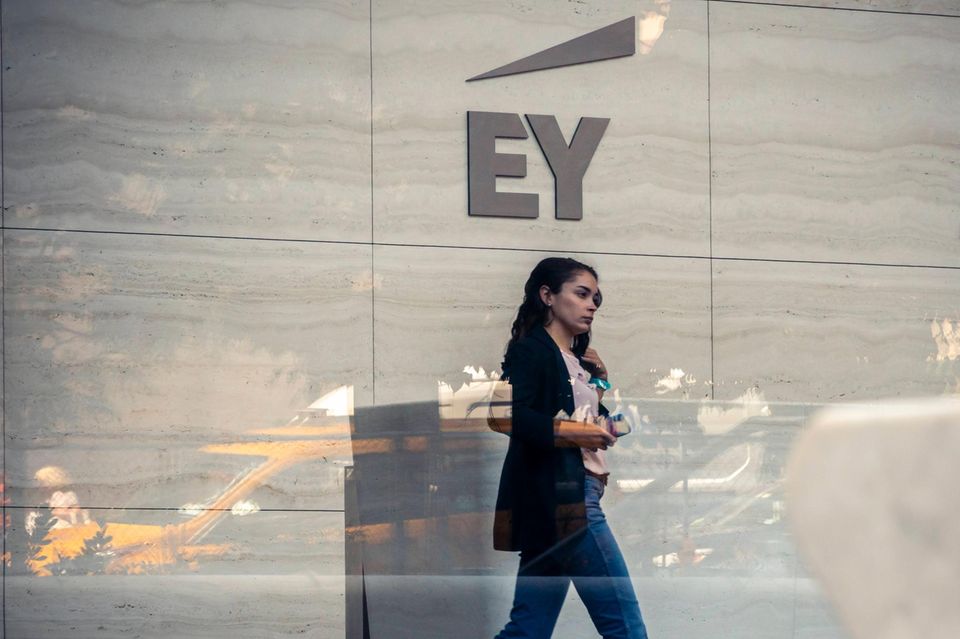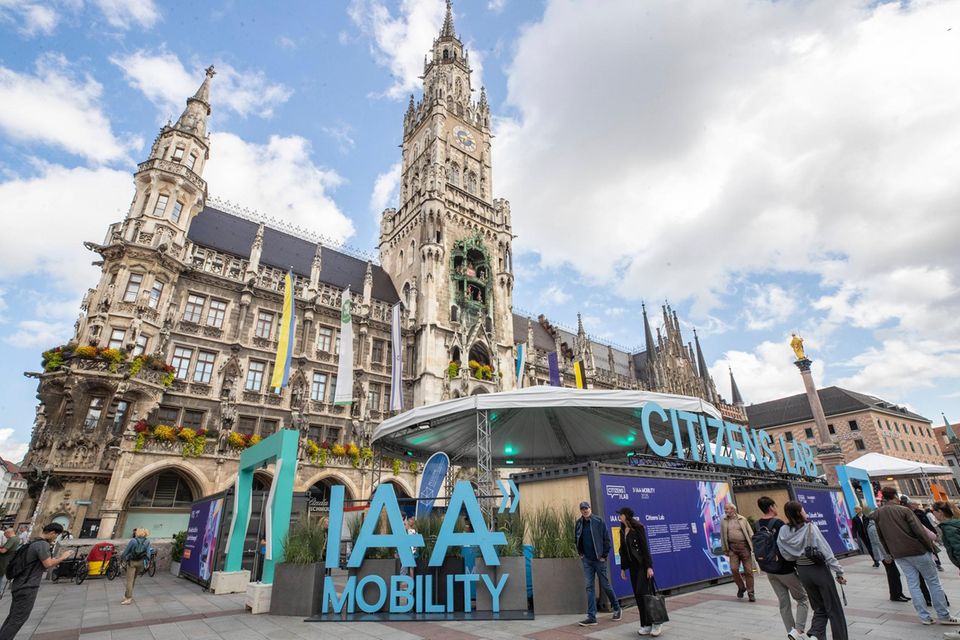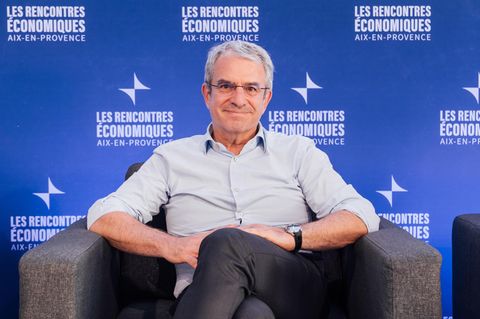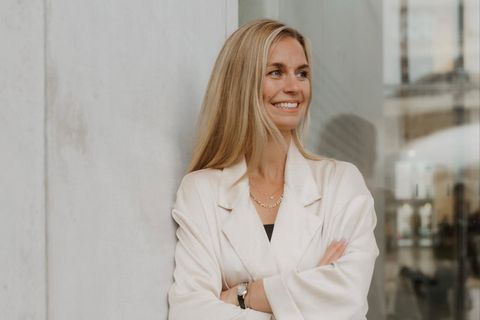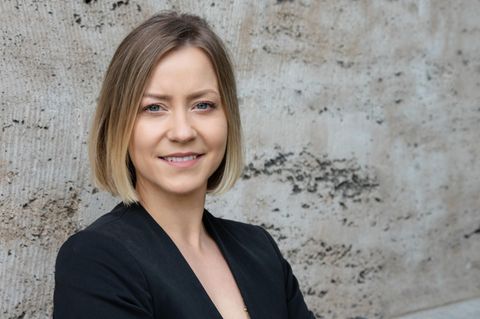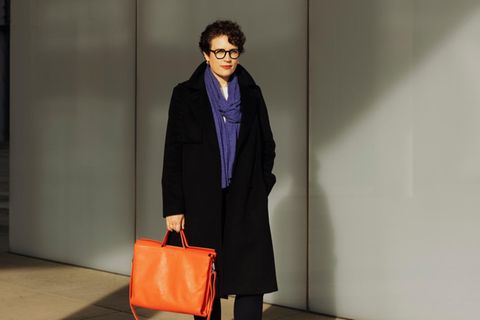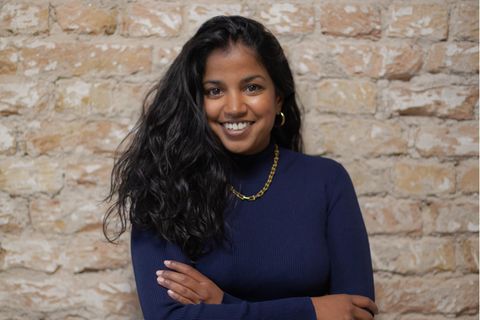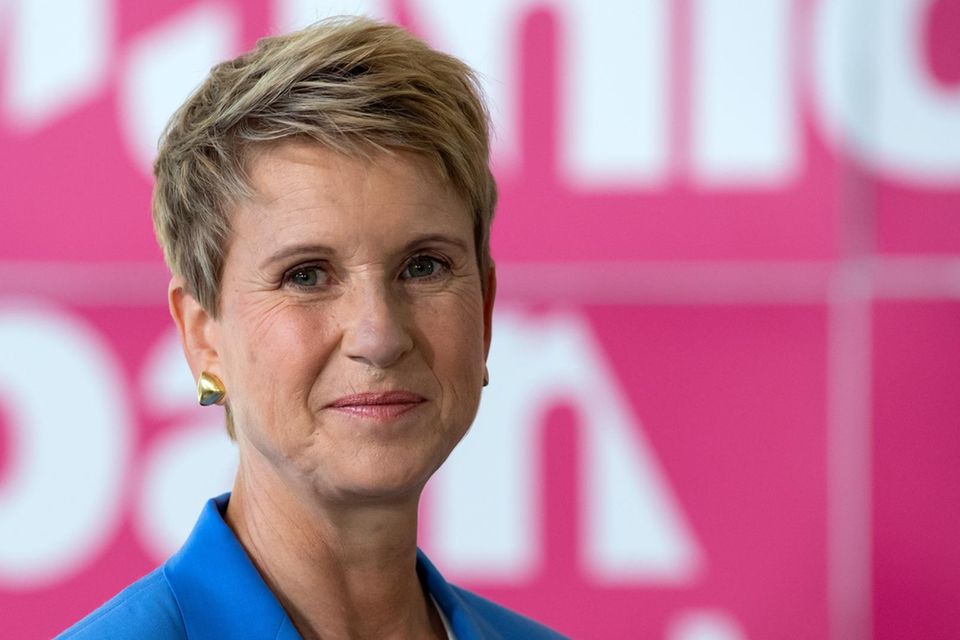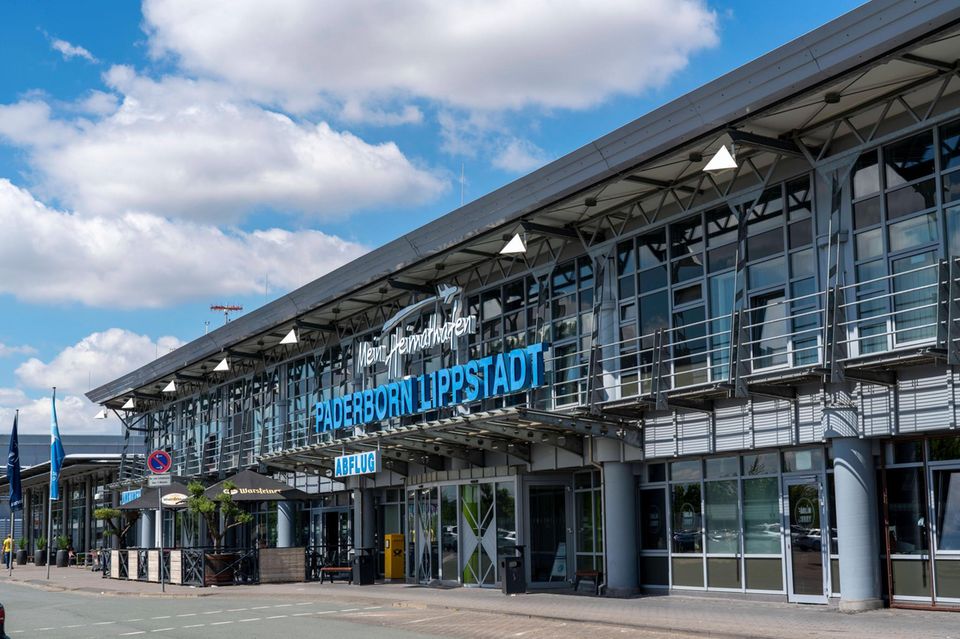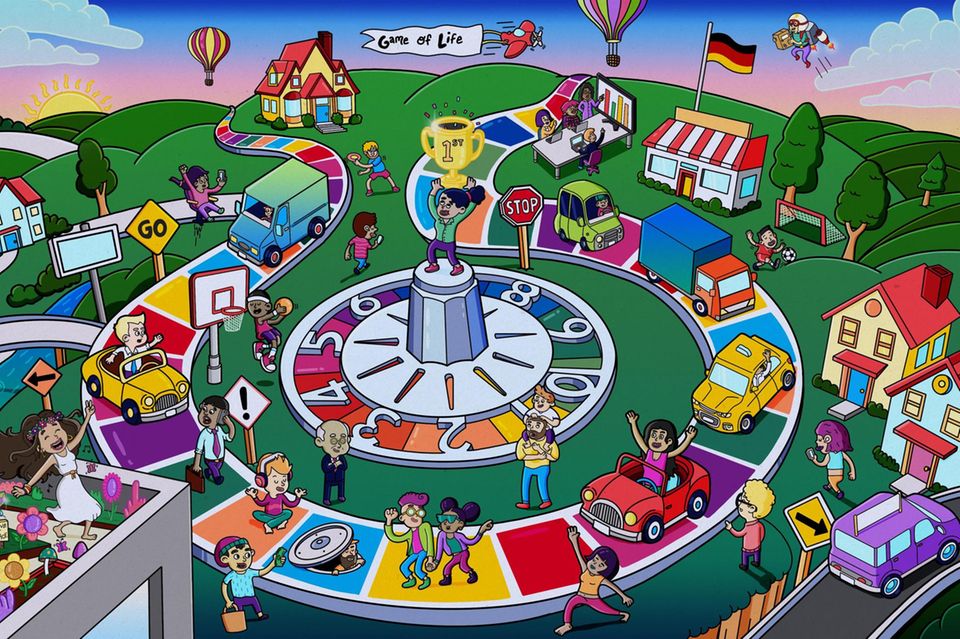Long before the age of social networking, Klaus Schwab had the idea of bringing together business leaders and politicians from all over the world. A conference in Davos saw the foundation of the World Economic Forum, a unique global platform that is constantly expanding. So what is the secret of its success?
Mr. Schwab, 45 years ago, you invited several hundred business leaders and economists to a conference in Davos. How did you come by such an idea at the tender age of 33?
Davos was never a conference; it was more the realization of an idea, which was to create a platform that would bring decision-makers together. The idea came to me while I was writing a book. Back then, I was a professor and had some time on my hands. The book was about modern enterprise management in the mechanical engineering industry, and I was busy developing the stakeholder theory. The stakeholder theory suggests that companies bear responsibility not only towards their stakeholders, but also towards everyone who has an interest in its continuance, i.e. customers, staff, the state and the public. Then I asked myself: Why not set up a platform bringing all these stakeholders together?
Where did the idea come to you? Is it true that you were lying by a swimming pool in Davos?
I was actually swimming in a pool opposite the congress center, which had at that time just opened and is now the main venue for the annual conference. I thought that the seclusion of Davos would make it the ideal place for such a platform. Back then, I was very much inspired by the term “global village”, as explored in the books written by Canadian philosopher Marshall McLuhan. I wanted to bring all the stakeholders together in a global village, and Davos seemed like the perfect place.
In those days, you were in your early 30s and virtually unknown. What did you do to make your idea more significant and prominent?
I wrote a letter to Jean Rey, the Belgian President of the European Commission at that time. After all, I was already a professor. Rey actually answered and invited me to Brussels. After my visit, he delegated the matter to Vice-President Raymond Barre, who later became the Prime Minister of France. Barre had two conditions: firstly, it had to be not-for-profit. Secondly, it had to take place on European Community territory. In those days, I was full of illusions and said that Switzerland was sure to become a member of the EC in the near future. So we settled for Davos, and the Commission took on the patronage of the first meeting. Barre kept his association with the Forum for many years.
You had patrons - but where did the funds come from?
I financed the first meeting in 1971 out of my own pocket. I also borrowed money, under somewhat risky conditions: While I was playing golf in Spain, I got to know Eugen Klaussner, the CEO of furniture manufacturers Hukla from Gengenbach in the Black Forest; back then, they were one of the world’s biggest. Klaussner asked me to join his management board. I refused but told him about my project. He then offered to lend me the money, and the condition was: Either I repay the loan …
… or you join his company after all?
Yes. Labor law wouldn’t have allowed that anyway, but the first meeting, known as the European Management Symposium, was a great success. It was attended by 444 people from 31 countries and lasted two weeks. Everyone who took part said, “You should do this every year.” I used the revenues from the first meeting to pay off the loan, and the remaining 25 000 Swiss francs went towards setting up the Swiss foundation. The Forum has consequently always financed itself.
Right from the start, you managed to inspire enthusiasm for the Forum in prominent Americans. Where did this American interest come from?
That had a lot to do with my time in Harvard. Back in the 1960s, I wanted to go to Harvard Business School. However, as I already had a doctorate in engineering and was working for another doctorate in economic science, I wrote to the Dean, George Pierce Baker, and asked whether I could start in the second year. His answer was, “No way.” In the Harvard prospectus, I discovered the Littauer Center, now the Kennedy School. It said that if you were accepted there, you could also take courses at other institutes. So I said to myself, I’ll register there and leap into the second year right away.
And the Dean allowed it?
Yes, but not long after I started in 1966, I was invited to tea at the Dean's house. Baker wanted to meet the German guy who had outsmarted the system. That’s how we came to develop a close relationship: Dean Baker became the Chairman of our first conference, an appointment that naturally spread throughout the academic world in the USA.
You were really quite daring: wrote letters to Presidents of Commissions, outwitted Harvard Business School and then invited hundreds of people from all over the world to a Swiss health resort. How did you actually organize it?
I didn’t have a clue how to go about organizing a conference. That's why I placed an advertisement in the newspaper. I received an answer from a Ms. Hilde Stoll who organized conferences for the European agricultural union. She became the Forum’s first staff member. We only had a tiny office, and were under an incredible amount of pressure: Would we succeed? Would we fail? Did we have enough people? We printed registration cards, and every time we received a letter, we held it up to the light to see whether one of the cards was inside. Incidentally, Hilde and I got married one year later, and she officially left the organization.
How much of the stakeholder theory is still around today? The Forum initially dealt with specific questions relating to enterprise management, but has long since become very political.
The stakeholder concept has changed. Nowadays, we make a distinction between microtheory and macrotheory. The microtheory is still concerned with companies and their stakeholders. At macro level, the enterprise is itself a stakeholder, and here I distinguish between five categories: There are the governments and international organizations in the political arena, secondly there are the companies, thirdly civil society, fourthly the experts - known internally as communities - and finally, young people, who in my view are very important for the future.
And you bring them all together in Davos …
We as a platform bring them all together – far beyond Davos. Nowadays, we are a recognized international organization with the same status as the International Red Cross or the Olympic Committee, and we have 700 employees worldwide who are responsible for numerous initiatives, networks and regional conferences. The Young Global Leaders program, for example, brings together young managers from all over the world. We have been promoting Social Entrepreneurs for many years. Last year, we started an initiative for the future of the Internet …
Does that mean the Forum is an engine that is constantly ticking over?
Yes, on average, one task force meeting is held somewhere every day. Before Christmas, for example, I set up an Internet conference with Chinese President Xi Jinping advocating an open Internet. The same evening, I met Alibaba founder Jack Ma for dinner; he is also a member of our Board of Trustees. I myself am always traveling; last year, I went to America five times and Asia five times, three of those trips were to China. I went to the Middle East four times. I often work 70 hours a week, and I spend 40 percent of my time travelling by plane.
When did you realize that the Forum's services were filling a market gap, and that companies are willing to pay a lot of money for this kind of conference?
For me, there was no market gap; it was a natural process: We had a new, convincing idea. We offered something, and the costs naturally had to be recouped. We never saw it as a commercial outfit; our statutes still stipulate that it is a not-for-profit organization. These days, the need for a global organization promoting cooperation between business and politics is greater than ever.
But how do you manage to get companies to keep making contributions?
There were three phases of development. The first phase was about building up convening power. People had to feel that they needed to come. For this, it had to be both exclusive and inclusive. For this, it had to be both exclusive and inclusive. We got all the stakeholders involved at an early stage, the trade unions and civil rights activists like Petra Kelly. That was the first step. The next was to form a real community merely from participation in an annual conference. This means that we are only open to members, so that we can keep control of the quality. Then came the third phase, in which we said that our members had to be catalysts and sources of ideas. This was the only way to establish intellectual leadership and become a force for new concepts.
Why did you never try to earn big money with the Forum?
We have only been able to gain the trust of politicians and civil society by remaining true to the principle of a not-for-profit organization. The same applies to my personal credibility – and my salary. Neither have we ever paid fees to speakers.
The Forum is probably the only network of its kind. Do you have a recipe for its success?
Everything starts with the community of interest. Only when a community is made up of like-minded people, do people have a reason to commit themselves. If everybody follows their own interests, the result is merely a superficial network, not a lasting one. However, this community of interest has to become a community of purpose: We have to develop common goals. This should then be followed by the third phase: a community of action.
How do you measure the success of all these conferences and networks?
There are so many examples. Let’s take GAVI, the Global Alliance for Vaccines and Immunization, thanks to which hundreds of millions of children have now been vaccinated. This was largely financed by Bill Gates, but the idea was born in Davos. For our Grow Africa initiative, we mobilized almost $10 billion in capital to help millions of farmers. The project Table for Two has financed 50 million meals for children in African schools. Over the decades, the Forum's work has sowed the seed for many peace negotiations. We bring together countries and politicians who would normally never meet. However, it is important that we always stay in the background – we don't beat our breasts and say, "Look how heroic we are". If you get married and I am the marriage bureau, you don't want me telling the world, "It's thanks to us that he's no longer single".
What is your biggest success, the greatest moment in the last 45 years?
As a German, I was of course deeply moved by the meeting between Helmut Kohl and Hans Modrow in Davos in 1990. It was the first meeting between the Chancellor and the President of the GDR since the fall of the Berlin wall, and a lot of progress was made. Kohl realized at the meeting that the plans for reunification in the long term were unrealistic. However, the greatest moment was with Nelson Mandela. He came to Davos for the last time in 1997. When we said goodbye, the staff and participants formed a guard of honor, and he turned around and said in his unforgettable voice: "Without you, the destiny of my country and of Africa would have been different." That was the biggest compliment I've ever received.
This year, the motto for Davos is "Mastering the Fourth Industrial Revolution" – aren't you rather late with this controversial topic?
Yes, to some people in the German business sector, this seems outdated – after all, they are already talking about Industry 4.0. However, this is not true of many other countries and companies. We want to deepen and conceptualize this, and are trying to find the best minds and approaches for doing so. The wide variety of input means our thinking may at times be somewhat more advanced.
Does the WEF actually have competitors as a brand and enterprise?
There have been many attempts to imitate us, but this is very difficult. You need trust, a status, continuity and a community. For a global platform like the Forum, you also need money – the annual conference alone incurs direct costs of approx. 35 million Swiss francs. The Forum is a platform, and like every platform enterprise – you also see this with Google – it is difficult for competitors to attack the established companies.
You compare yourselves with Google?
As far as the platform concept is concerned, yes. Once you have established the platform, new ideas can be integrated quickly. Take, for example, the climate conference in Paris, for which we and Unilever CEO Paul Polman started our own initiative, which was integrated into the official process. However, we too are not immune. Expectations are naturally on the rise. I always tell my staff, "We have to learn to run 10 percent quicker every year – this is the only way we can stay at the top."
Every year, there is a wealth of formal and informal side events in Davos. Some participants don’t even leave the conference rooms in their hotels. Does that trouble you?
It troubles me a lot, yes. Particularly all this speed-dating. This is the difference between a community of purpose and a conference at which everyone merely pursues his own interests. But I have to tolerate it.
What do you actually do when you aren’t welcoming guests onto the stage in Davos or giving interviews?
I had almost 150 engagements at last year's conference – that's enough.
Have you ever thought of reducing the scale of events in Davos?
This is a problem. After all, the idea of a global summit is to have a cross-section of representatives, all of whom are equal. Each government must have at least one representative; most of them have three or four. People also go to Davos because they know they will often meet half the cabinets of the most important countries, and see the CEOs of the biggest banks and corporations. They also take part in the Forum because they know they will meet the most interesting thinkers.
You once said that you see yourself as an artist, and people don’t ask artists when they are going to retire. However, how will you safeguard your life's work? Who is to be your successor?
There is no heir. The Forum has long since become a team. We implement the partner concept in our management. We have plenty of people with experience, including former ministers such as Philipp Rösler and former business leaders such as Jim Snabe. I am an integral part of the foundation's management and board of trustees. Once I am no longer able to fulfill my responsibilities, there is a letter in my safe that gives precise instructions on what to do.
Does it contain the name of a successor?
It contains several possible names, yes.
What is your advice to young people who also have a great idea but are hesitant about putting it into practice? Don’t be bound by restrictions and conventions?
Certainly the courage to break through barriers is part of it. I always say: Be modestly self-confident. Believe in what you are doing. Do it to the best of your ability, and stay true to yourself. Don’t become arrogant, stay in the background.
And what do you need to bring people together like you have?
As a networker, you should not push yourself to the front. This has always been my motto. I don’t give speeches, except at our events. My wife and I hardly ever go out. You will never see me at a cocktail party or embassy reception. I never drink cocktails or make small talk. People always think I’m a great social networker, but that’s only true to some extent. What interests me is intellectual dialog. This is very important: If you want to bring people together, you need substance. You don’t network for its own sake, but to accumulate greater knowledge and insight. For me, everything else is a waste of time.
